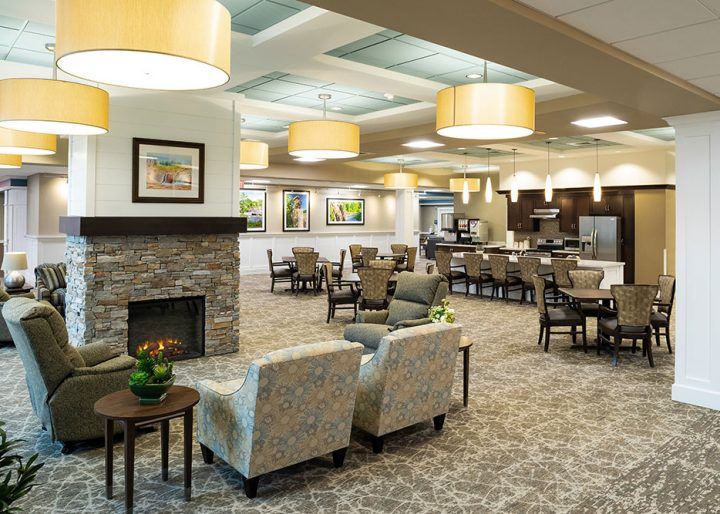Discover the top-rated Memory Care programs with experienced caregivers.
Discover the top-rated Memory Care programs with experienced caregivers.
Blog Article
Finding the Right Assisted Living Solution for Tailored Memory Care Programs
The process of choosing a proper assisted living solution for tailored memory treatment programs calls for a nuanced understanding of individual needs, particularly as they associate to cognitive problems such as Alzheimer's and dementia. As we discover these elements, the inquiry remains: what truly comprises an optimum setting for memory care?
Comprehending Memory Treatment Needs
Comprehending the one-of-a-kind memory care needs of people with cognitive impairments is important for giving effective assistance and boosting lifestyle. Cognitive impairments, including Alzheimer's disease and various other types of mental deterioration, significantly affect an individual's ability to process details, communicate, and preserve freedom. As a result, tailored techniques are crucial in resolving these obstacles.
People with memory impairments frequently experience confusion, mood fluctuations, and disorientation, demanding an encouraging and organized environment. Memory care programs must concentrate on developing a secure room that motivates social communication, cognitive engagement, and emotional well-being. This can be achieved via specialized activities, such as memory video games, art treatment, and memory sessions, which promote cognitive stimulation and preserve individuality.

Assessing Team Qualifications
The credentials of staff participants in memory treatment programs are vital to delivering premium assistance for individuals with cognitive disabilities. Examining team certifications entails assessing both academic background and sensible experience in geriatric care, specifically in memory-related conditions such as Alzheimer's and other types of dementia.
Search for personnel that possess appropriate certifications, such as Qualified Mental Deterioration Specialist (CDP) or specialized training in memory care. These qualifications show a dedication to comprehending the intricacies of cognitive decrease and reliable interaction strategies customized to locals' one-of-a-kind demands. Additionally, ask about recurring training opportunities that team member join, as continuous education and learning is vital in an area that advances swiftly with new research study and finest methods.
Additionally, evaluate the staff-to-resident ratio, as this straight affects the top quality of treatment. Ultimately, a professional group is critical in fostering a setting that enhances the self-respect and quality of life for people in memory treatment.
Value of Personalized Treatment Program
Personalized treatment plans play an essential role in improving the wellness of individuals in memory care programs. These plans are customized to the distinct demands, preferences, and capacities of each resident, ensuring that treatment is both relevant and reliable. By considering variables such as case history, cognitive function, and personal passions, caregivers can produce a thorough technique that advertises dignity and regard for each and every individual.
The relevance of personalized care plans prolongs past fundamental treatment demands; they foster a complacency and knowledge, which is crucial for people experiencing memory obstacles. By addressing particular behavioral patterns and emotional responses, caregivers can carry out methods that lower anxiousness and boost overall high quality of life.
In addition, individualized treatment strategies assist in far better interaction amongst team, household participants, and health care service providers. This joint strategy makes certain that every person included is informed and lined up in their treatment efforts, leading to more constant and effective support. Inevitably, a well-structured tailored treatment plan is important in memory care programs, as it not just boosts everyday living experiences but likewise adds to the long-term health and happiness of residents.
Engaging Tasks and Programs

Tasks such as art treatment, music sessions, and reminiscence treatment offer avenues for self-expression and cognitive involvement. These purposeful interactions not just aid in maintaining cognitive capabilities but additionally provide psychological advantages, reducing feelings of seclusion and stress and anxiety that often come with memory loss.
Furthermore, structured team tasks can urge socialization, which is important for emotional health - Assisted Living. Routine involvement in video games, workout courses, and neighborhood getaways creates an environment of sociability and support. Tailored programs that take into consideration individual passions and histories even more improve engagement, making tasks extra purposeful and efficient
Including technology, such as memory video games and digital truth experiences, can likewise serve to improve the day-to-days live of homeowners, giving ingenious ways to stimulate cognitive feature. Ultimately, a focus on interesting activities and programs is crucial for cultivating a supportive environment that promotes all natural wellness in memory care settings.

Assessing Area Atmosphere
When examining an area setting for memory treatment programs, it is essential to consider elements that add to the total wellness and security of locals. The physical format of the area need to prioritize ease of access and navigating, reducing obstacles while supplying clear signs and acquainted sites. A secure setting is necessary to prevent locals from wandering, which can position safety and security dangers.
Additionally, the sensory facets of the area, such as lighting, color systems, and noise degrees, play a substantial role in improving convenience and minimizing anxiety among locals. All-natural light and exterior areas promote engagement with nature, fostering a soothing ambience that can benefit cognitive function.
One more crucial element is the availability of experienced personnel that recognize the special requirements of people with memory problems. Personnel should be furnished to develop a caring environment that encourages social interaction and emotional assistance.
Last but not least, the sense of community and belonging is crucial. Engaging family participation and opportunities for residents to develop connections with peers can substantially boost their general lifestyle. Memory Care. By thoroughly evaluating these variables, family members can make educated decisions regarding the most ideal memory treatment area for their enjoyed ones
Conclusion
In conclusion, picking a suitable assisted living solution for customized memory treatment programs necessitates a detailed analysis of specific demands and preferences. Prioritizing personnel qualifications, customized treatment strategies, involving tasks, and an encouraging community environment is important for improving the lifestyle for residents encountering cognitive challenges. By attending to these crucial variables, family members can make sure that their enjoyed ones receive the essential find out support and like promote emotional health and cognitive excitement in a nurturing setup.
Report this page